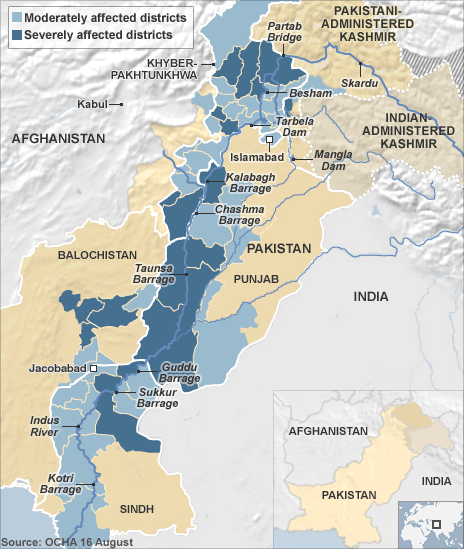Symposium Brings Attention to State of Healthcare, Relief Efforts
in Pakistan
 |
| Asher Hasan, MD, MBA, chief executive officer of Naya Jeevan for Kids; Rashid Chotani, MD, MPH, vice president and global advisor for public health at Experior Advisory; Asad Hayauddin, of the Consul Trade and Commerce for the Consulate General of Pakistan Chicago; and Todd Shea, founder of Shine Humanity, answer questions from the audience during the symposium’s panel discussion. |
Several months ago, heavy monsoon rains in northwest Pakistan caused the worst disaster in the nation’s history. United Nations officials estimate that more than 20 million people were affected. The Northwestern University Feinberg School of Medicine Center for Global Health held a symposium recently to raise public awareness of the global relief efforts underway and the state of healthcare in Pakistan.
The event, “Pakistan Symposium: An Unprecedented Humanitarian Crisis,” brought in disaster relief experts engaged in relief on an international scale. Speakers included:
- Rashid Chotani, MD, MPH, vice president and global advisor for public health at Experior Advisory and director of the Global Infections Disease Surveillance and Alert System at the School of Public Health at Johns Hopkins University
- Asher Hasan, MD, MBA, chief executive officer of Naya Jeevan for Kids, a social enterprise that provides microinsurance for the urban poor
- Todd Shea, founder of Shine Humanity, a disaster relief organization focused on helping communities to rebuild and strengthen their healthcare delivery systems
- Asad Hayauddin, of the Consul Trade and Commerce for the Consulate General of Pakistan Chicago
Infectious disease expert Chotani, also director of the Chemical-Biological Defense Programs at TASC, Inc. and a senior advisor to the U.S. Department of Defense, outlined the primary effects of the flooding (physical damage, causalities), as well as the secondary (little food, water) and long-term effects (economic instability). He also set the scene by sharing numerous facts about Pakistan: it covers 800,000 square kilometers; 43 percent of the population is under the age of 15; and there are merely eight physicians per 100,000 people.
“The people of Pakistan are very young, and the health system, even prior to this catastrophe, was not strong,” says Chotani. “With devastation from the Himalayan Mountains to the Arabian Sea, there remains a critical need for health services, as the rate of diseases and disabilities continues to climb.”
Chotani insists that to successfully combat this adversity, Pakistan needs the following and more: aid versus pledges; sustained international assistance; a skilled healthcare workforce; and diarrhea treatment centers.
 |
| A map of Pakistan shows the areas affected by the recent flooding (in blue). |
Hasan’s group is attempting to combat the inadequate healthcare infrastructure by providing low-income Pakistani families with access to healthcare through microinsurance, or insurance with low premiums and low caps.
“We are enrolling large numbers of flood victims into our health plan, which offers these villagers access to quality, private hospitals for secondary or tertiary care,” says Hasan. “The care is currently funded by philanthropic organizations, but the goal is to eventually move to a self-funded model.”
Shea, a former singer and songwriter turned humanitarian, spends seven months per year in Pakistan. He and volunteers from his organization have witnessed first-hand the disappearance of villages, livestock, and people. Fungal infections and waterborne diseases only begin to tell the story of the grave state of the overwhelmed, under-resourced, and understaffed healthcare system.
“It’s not rocket science what we’re doing,” says Shea. “We’re bringing in medicine to fight common diseases, taking services to people who don’t have access, and helping hospitals to reestablish themselves.”
Shea says his group and others are facing donor fatigue due to other recent disasters, a bad economy, and a negative portrayal of Pakistan by the U.S. media. Meanwhile, in Pakistan, vulnerable populations are living in overcrowded camps struggling with, among other problems, sanitation issues and lack of shelter for their families.
“The United States would not have been able to handle a disaster of this size,” Shea says. “So, as you can imagine, Pakistan is certainly not equipped to properly battle their crisis alone.”






